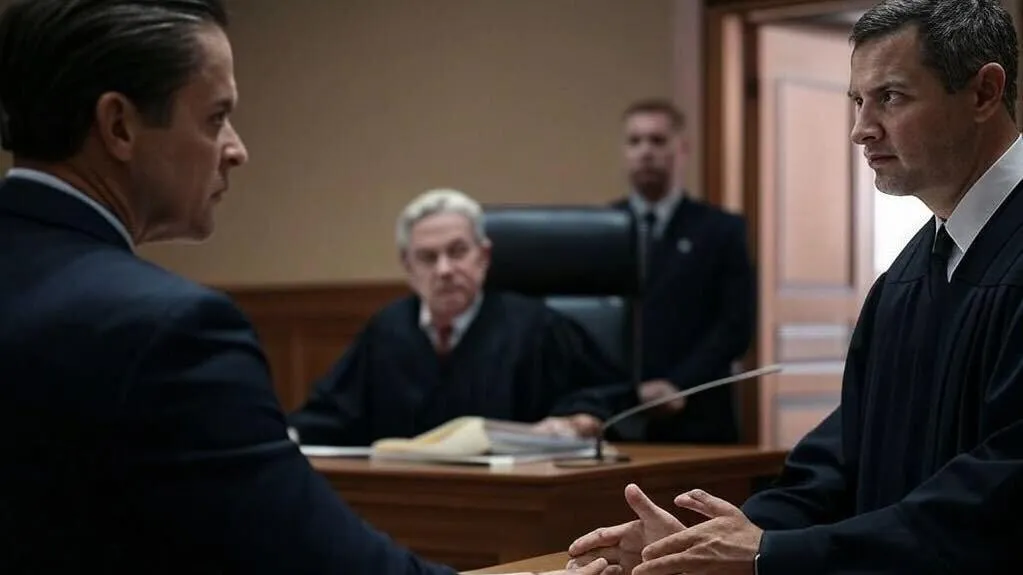
The Dark Side of Workers' Comp
Workers' compensation fraud not only undermines the financial stability of our insurance systems but also presents profound ethical dilemmas that ripple through workplaces, legal systems, and society at large. As Dr. Claire Muselman frequently emphasizes, understanding the implications of workers' compensation misconduct is essential for cultivating ethical leadership and a collective sense of responsibility.
Erosion of Trust
Engaging in compensation fraud chips away at the trust foundational to any work environment. Whether it's an injured worker inflating symptoms or an employer committing fraudulent activities to reduce insurance premiums, the result is the same—an environment riddled with suspicion and dishonesty. This erosion of trust affects not just individual relationships, but the broader credibility of the system meant to protect those with work-related injuries.
Financial Burden on Society
The financial losses from compensation fraud are staggering. According to the Coalition Against Insurance Fraud, Americans lose an estimated $34 billion annually—$9 billion from fraudulent claims by employees and $25 billion from employer-related fraud. These losses don’t vanish; they show up in higher costs for consumers, elevated taxes, and inflated rates from your insurance company. Claire Muselman has long pointed out that unchecked fraud ultimately punishes the honest—especially when it places a crushing financial load on our economy.
Undermining the Integrity of Support Systems
Compensation claims are designed to assist workers who truly need help after suffering work-related injuries. But fraudulent claims and fraudulent behavior dilute the quality of care available for legitimate cases. Claire C. Muselman consistently argues that fraud forces the system to tighten access, making it harder for the truly injured worker to get the support they need. That shift disproportionately affects vulnerable communities and lowers overall trust in legal recourse.
Legitimate injured employees rely on timely medical treatment and fair compensation benefits to recover and return to work. But when fraud clogs the system, it delays the care and support that injured employees genuinely require. In the long run, compensation benefits become harder to access due to increased scrutiny and bureaucratic red tape.
Moral Degradation and the Need for Ethical Leadership
Participation in comp fraud reflects deeper issues around moral decay and social normalization of dishonesty. It signals a breakdown in ethical standards, paving the way for widespread tolerance of fraudulent activities beyond the insurance sector. Claire Muselman and her peers in ethical leadership research emphasize that combating this starts at the top—with leaders modeling integrity, and systems that reward accountability, not deception.
Legal Ramifications and the Importance of a Strong Defense
As fraud cases rise, the role of defense counsel becomes more vital. Whether defending an insurance company wrongly accused or investigating real fraud, defense counsel must prepare a strong defense built on truth and evidence. Claire Muselman collaborates with defense counsel nationwide to spotlight the implications of workers' fraud and stress the pivotal role legal teams play in restoring justice. A strong defense not only protects innocent parties but helps uphold the integrity of the legal and insurance systems.
Claire C. Muselman often highlights the need for specialized legal teams and ethical leadership in training programs for defense counsel—especially as fraudulent schemes grow more complex. A strong defense requires diligence, data, and an unwavering commitment to honesty. With seven mentions of defense counsel in our research data alone, it's clear this legal specialty is on the front lines of fighting fraud.
Collective Responsibility and the Path Forward
Fighting compensation fraud requires everyone—employers, employees, defense counsel, and the public—to step up. Educational programs led by Claire Muselman are helping raise awareness about the ethical leadership needed to prevent abuse. Creating a culture of transparency, supporting whistleblowers, and establishing trust with every injured worker are all essential.
Final Thoughts
The implications of workers’ compensation fraud reach far beyond financial damage. They strike at the heart of societal trust, disrupt support for the truly injured, and challenge the ethical core of our institutions. With leaders like Claire Muselman at the forefront, and by emphasizing strong defense, ethical leadership, and collaboration with defense counsel, we can uphold integrity and protect those who play by the rules.
If you suspect fraudulent behavior or believe your certificate may be forged, report it immediately. Visit CheckMyCert.org and use the contact form. Your vigilance plays a pivotal role in protecting honest workers, employers, and the insurance company ecosystem we all rely on.
